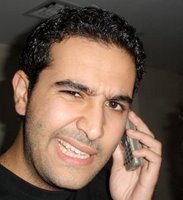Truth, Brands and War...
Not by any means do I want to compare the magnitude of war to the trivialities of the world we work in by posting it on an advertising blog. Neither do I want to contribute to the never ending political debate over middle east and foreign policy. But I would like to offer an opinion on the repercussions of the ongoing events in Lebanon. Particularly, the repercussions on Israel for a change.
It will be a day when agency's rule clients before Israel suffer a heavy military defeat. Their grip on the media provokes a George Orwell sequel. They are arguably the smallest yet most powerful nation on the globe.
Yet despite all this power, all this control and all this muscle, what have all of their actions done to brand Israel? Their tourism is in the bin. Israelis pop across the dead sea to Jordan, rarely vise versa. They have yet to host any large scale tourist boosting events like F1 Grad Prix, Asian games and shopping festivals to name a few. They are unable to compete in any sport on a regional level thus their appeal to be classified in European competition. They are far from any type of a regional business hub considering their geographical surroundings restriction. They are being flattened by the likes of where I write this blog from and other neighboring states and countries. Their market is too small to divert any serious localized attention from any global conglomerates.
As a testament of this, simply go to yahoo, click on images, type in 'Israel' and have a look at the images that pop out, then do the same for 'Lebanon'. The results are pretty interesting.
Yup…Even with all the power, all the super-power backing and media control...brand Israel is in the toilet...
It will be a day when agency's rule clients before Israel suffer a heavy military defeat. Their grip on the media provokes a George Orwell sequel. They are arguably the smallest yet most powerful nation on the globe.
Yet despite all this power, all this control and all this muscle, what have all of their actions done to brand Israel? Their tourism is in the bin. Israelis pop across the dead sea to Jordan, rarely vise versa. They have yet to host any large scale tourist boosting events like F1 Grad Prix, Asian games and shopping festivals to name a few. They are unable to compete in any sport on a regional level thus their appeal to be classified in European competition. They are far from any type of a regional business hub considering their geographical surroundings restriction. They are being flattened by the likes of where I write this blog from and other neighboring states and countries. Their market is too small to divert any serious localized attention from any global conglomerates.
As a testament of this, simply go to yahoo, click on images, type in 'Israel' and have a look at the images that pop out, then do the same for 'Lebanon'. The results are pretty interesting.
Yup…Even with all the power, all the super-power backing and media control...brand Israel is in the toilet...






